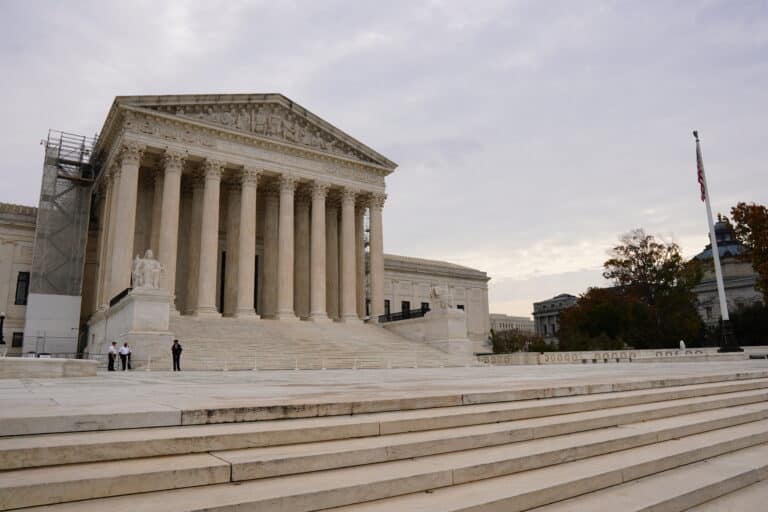The justices have once again cleared their plates of pending challenges to the federal ban on felons possessing firearms.
In its Monday orders list, the Supreme Court denied certiorari in at least seven different petitions requesting guidance on the constitutionality of permanently disarming people convicted of an offense punishable by more than a year in prison. None of the denials featured any commentary from the justice expressing dissent or explaining their decisions.
The spate of denials means the legal state of uncertainty surrounding the most commonly enforced federal gun law will continue for now. It also suggests that the Department of Justice’s (DOJ) recent arguments against Supreme Court intervention on the issue may have persuaded a majority of justices.
While six of the seven rejected petitions represented long-shot facial challenges to the federal ban in lesser-known criminal cases, at least one challenge, Edell Jackson v. United States, has enjoyed heightened scrutiny from the DOJ and Supreme Court alike.
In 2024, the DOJ specifically cited Jackson as one of several cases dealing with non-violent felons it wanted the Court to take up. The Court instead opted to grant, vacate, and remand the decision back down to the Eighth Circuit to be reconsidered with its US v. Rahimi decision in mind. The Eighth Circuit then delivered an unchanged ruling that the lifetime ban for felons is not susceptible to individual as-applied challenges.
“[W]e conclude that legislatures traditionally employed status-based restrictions to disqualify categories of persons from possessing firearms. Whether those actions are best characterized as restrictions on persons who deviated from legal norms or persons who presented an unacceptable risk of dangerousness, Congress acted within the historical tradition when it enacted § 922(g)(1) and the prohibition on possession of firearms by felons,” the panel wrote in US v. Jackson. “Consistent with the Supreme Court’s assurances that recent decisions on the Second Amendment cast no doubt on the constitutionality of laws prohibiting the possession of firearms by felons, we conclude that the statute is constitutional as applied to Jackson.”
When Jackson again appealed his case to the Supreme Court, the DOJ–now under President Donald Trump–reversed course and urged the Court not to accept it in a brief filed last month. Instead, DOJ suggested that the legal issues in question would be better addressed by the Department’s recently renewed gun-rights restoration process housed under the Attorney General’s office.
“Although there is some disagreement among the courts of appeals about how to evaluate as-applied challenges to Section 922(g)(1), that disagreement is shallow; the recent revitalization of the Section 925(c) process may resolve it; and petitioner’s long criminal record makes this case a poor vehicle for addressing the question presented,” Solicitor General John Sauer wrote.
Jackson’s legal team argued that the incomplete rollout of the federal rights restoration process was an insufficient substitute for a Supreme Court ruling. In a reply brief, they said that even those given federal administrative relief would still be subject to state laws banning felons from owning guns. In contrast, they noted a federal constitutional ruling would automatically apply to the states under the Fourteenth Amendment.
“Even if an authentic remedy for federal firearms dispossession really did arise from the dormant shell of Section 925(c), it would not replace as-applied Second Amendment challenges to firearms dispossession in the federal courts, nor would it diminish the need for this Court to resolve the split of authority that effectively prohibits such challenges in significant parts of the country, while permitting them elsewhere,” his legal team wrote.
With his arguments failing to find purchase with the Court, Jackson’s felon-in-possession prosecution and lifetime disarmament will stand. So will the Eighth Circuit’s binding precedent of preventing all as-applied challenges by similarly situated defendants.
Outside of the cases challenging the federal felon-in-possession ban, the Court also rejected a separate Second Amendment petition for an as-applied challenge to a gun possession ban imposed as a condition of pre-trial release. It then opted to once again relist a pair of closely watched cases concerning Maryland’s ban on so-called assault weapons and Rhode Island’s ban on “large-capacity” magazines. The justices distributed those cases for conference for the 15th time and will next consider whether to take them up on Thursday.






